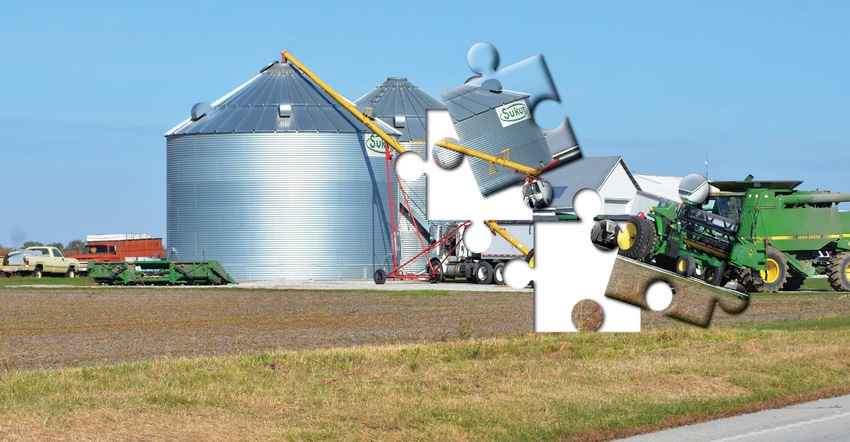5 tools to make splitting up farm easier
Business Basics: It’s time to think outside of the box for farm succession planning.
November 17, 2021

In last month’s column, I asked whether you could afford to start over and buy all of your operation’s land, livestock and machinery at today’s market prices.
If not, then ask whether it’s fair to expect your sons or daughters who farm to do that when buying farm assets from their siblings the day after your or your spouse’s funeral.
Unfortunately, farms rarely generate enough cash to make these purchases possible. You do, however, have some options to make this process work for the heirs who will take over the farm.
This column discusses five tools to consider when creating a farm succession plan that includes on- and off-farm heirs. These can help the farm remain with the family member running the day-to-day operation:
1. Cash rules. Cash can be the great equalizer when dividing parents’ assets among siblings.
Life insurance, retirement accounts or other liquid assets give parents flexibility to leave something other than physical farm assets to off-farm heirs. However, farm businesses often have minimal extra cash because their wealth is tied up in long-term assets.
To solve this cash crunch, parents who are insurable may buy life insurance and name off-farm heirs as beneficiaries. This is an excellent strategy to send cash to those heirs not actively engaged on the farm. The farm would then go to the successor.
For the successor who knows the farm will be split equally among all the siblings, he or she may consider buying life insurance on his or her parents. Although this may sound like a morbid concept — buying life insurance on your parents — the policy may provide the cash needed to buy out siblings with a lump sum when parents pass.
2. Buy-sell agreements. Parents can work with the successor to form a buy-sell agreement while they are still alive. The agreement can include favorable terms that give the next generation the best chance to succeed on the farm. These agreements can have various features to fit a family’s needs.
For example, an agreement may stipulate to sell the farm immediately or at a later date. In these agreements, a farm’s sale price does not have to be full market value, and the family can structure the sale in installments to limit income tax consequences.
3. First option to lease or buy. If splitting land equally among siblings, then the on-farm heir can be given the first option to lease or purchase his or her siblings’ portions. Once again, the parents can set favorable lease or purchase terms, such as the specific payments and interest a successor would pay over a number of years. This prevents the successor from making an immediate lump sum payment. Plus, the parents may often set a more favorable purchase price or terms for the successor than what siblings might require.
4. Organized business entity. Parents may choose to create a legal business entity, such as an LLC or corporation, and allow all siblings to share ownership of the business. In this case, the successor would operate the business on behalf of the other business members. He or she may also be given a controlling interest. Terms for buying or selling an interest would likely be included.
5. Separate land ownership from the farming business. Splitting the farm enterprise from ownership of the land allows parents and the successor to form a legal entity to operate the farm business together. This entity may own assets such as livestock and machinery. Land may be held separately and split among all siblings.
When the parents die, the on-farm heir would control the operating business, and all siblings would split the land. The parents’ estate plan may provide the successor with a right to lease the land for a guaranteed number of years, or the plan could allow the successor to have a first option to lease or buy.
Make a plan
Regardless of how you choose to split assets among multiple heirs, you should plan for how children may cash out their portions.
If you want your kids to gather for Christmas dinner after you’re gone, then do what you can now to make succession decisions and keep the peace. Don’t leave these decisions for your kids to sort out on their own.
Tucker is a University of Missouri Extension ag business specialist and succession planner. He can be reached at [email protected] or 417-326-4916.
You May Also Like
.png?width=300&auto=webp&quality=80&disable=upscale)


